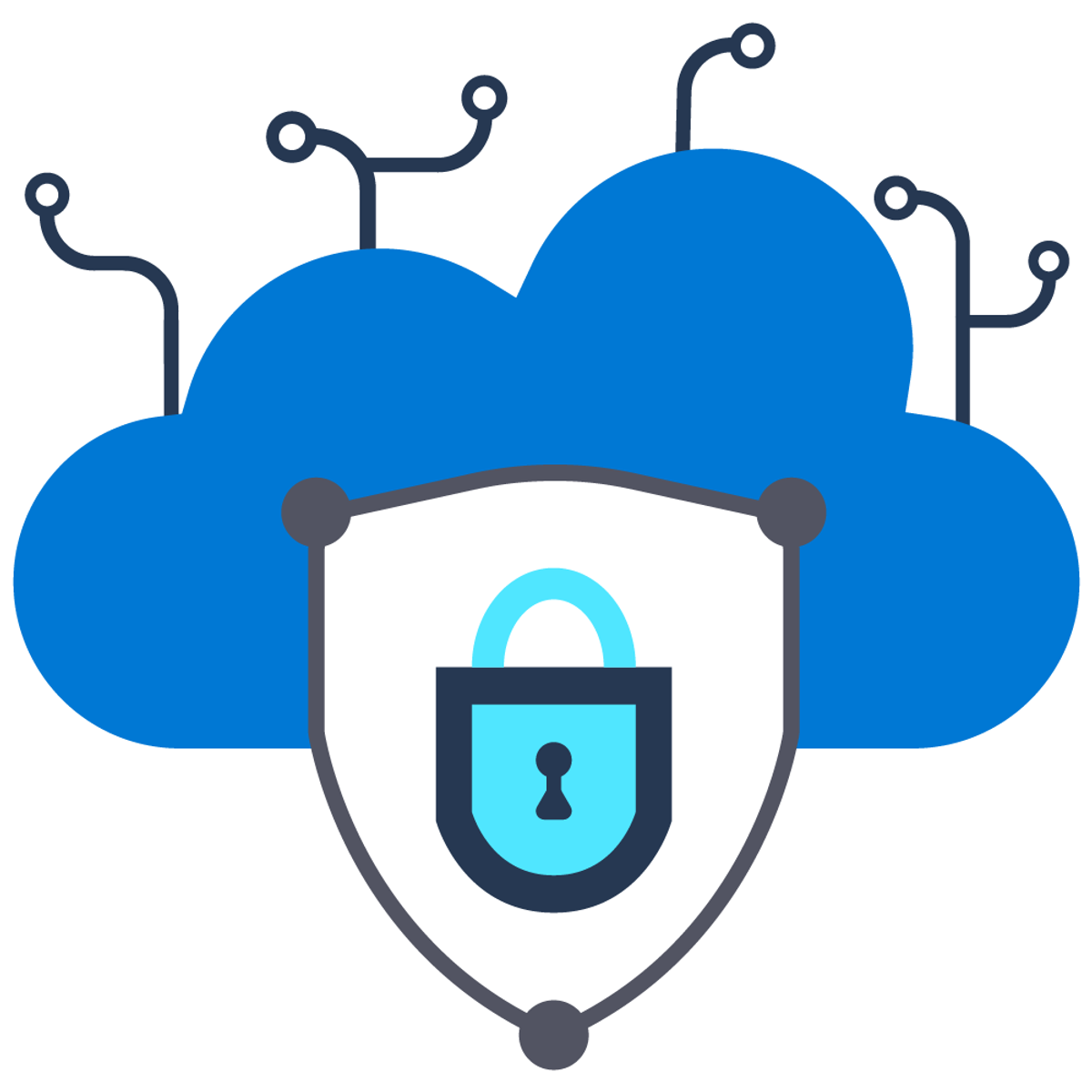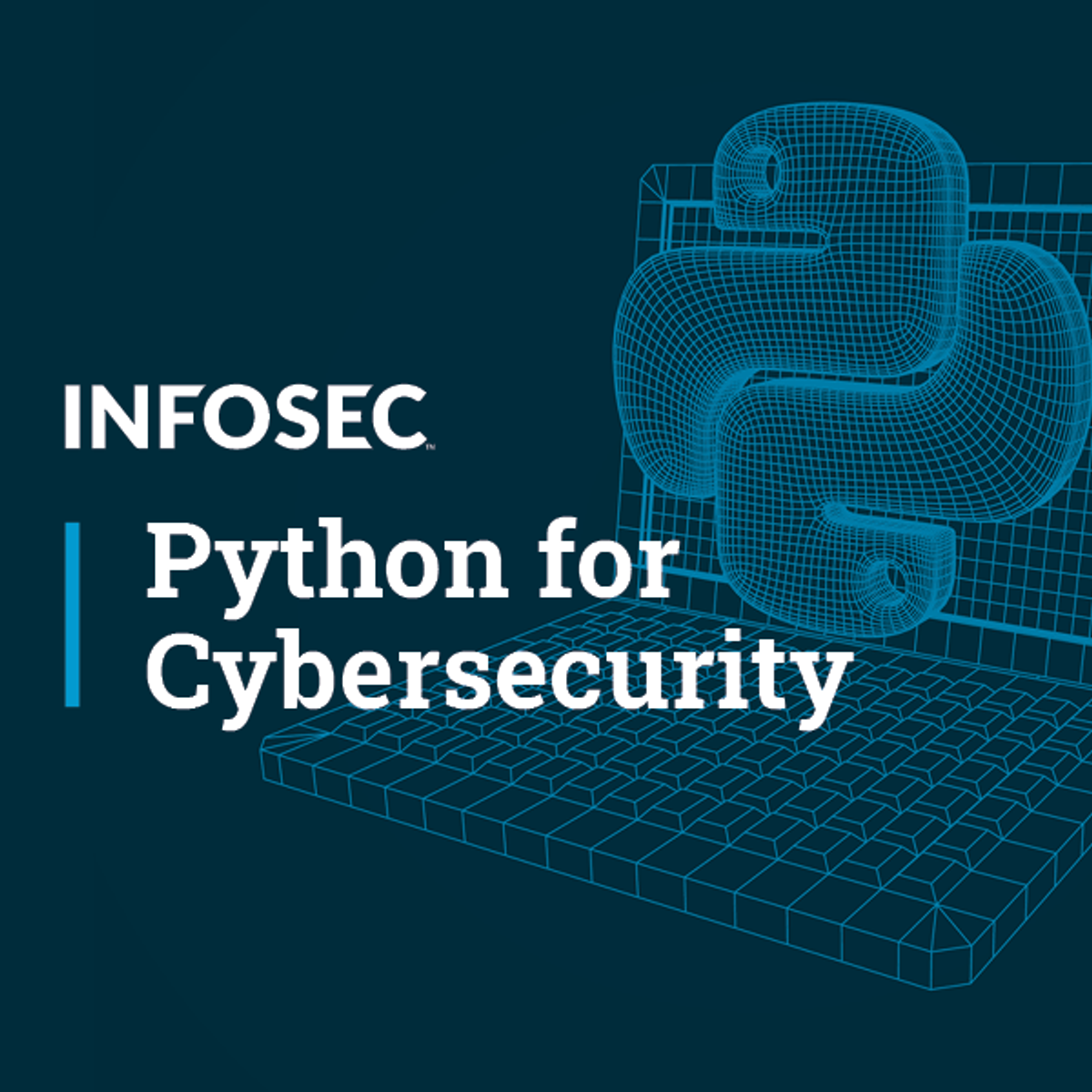Data Security Analyst
Data Security Analyst: A Career Guide
A Data Security Analyst stands on the front lines of protecting an organization's most valuable asset: its information. In our increasingly digital world, data breaches and cyber threats are constant concerns. This role involves identifying weaknesses, responding to incidents, and implementing measures to safeguard sensitive data from unauthorized access, use, disclosure, alteration, or destruction. They are the guardians of digital information, ensuring its safety and integrity.
Working as a Data Security Analyst can be deeply engaging. You'll constantly be solving puzzles, investigating potential threats, and learning about new technologies and attack vectors. It's a dynamic field where vigilance and quick thinking are rewarded. Furthermore, the knowledge that your work directly contributes to protecting individuals' privacy and an organization's reputation provides a strong sense of purpose.
Introduction to Data Security Analysis
This section delves into the fundamentals of data security analysis, exploring its scope, objectives, evolution, and relevance across various industries.
What is Data Security Analysis?
Data Security Analysis is the practice of protecting digital information throughout its lifecycle. This involves designing and implementing security measures, monitoring systems for breaches, analyzing security risks, and ensuring compliance with data protection regulations. Analysts work to prevent data theft, corruption, and unauthorized access.
The scope is broad, covering everything from securing databases and cloud storage to protecting data transmitted across networks and stored on endpoints like laptops and mobile devices. It requires a blend of technical knowledge, analytical skills, and an understanding of potential threats and vulnerabilities.
Ultimately, a Data Security Analyst acts as a crucial defender within an organization. They are tasked with understanding where sensitive data resides, who has access to it, and how it is protected against a constantly evolving threat landscape.
To better understand the fundamentals of protecting data, particularly in cloud environments which are increasingly common, consider exploring introductory courses.
Core Mission: Protecting Digital Assets
The primary goal of data security revolves around three core principles known as the CIA triad: Confidentiality, Integrity, and Availability. Confidentiality ensures that data is accessed only by authorized individuals. Think of it like a private diary; only you should have the key to read it.
Integrity means maintaining the accuracy and consistency of data over its entire lifecycle. Data must not be altered in an unauthorized or undetected manner. Imagine a bank account balance; its integrity is crucial, ensuring the amount shown is correct and hasn't been tampered with.
Availability ensures that data and resources are accessible to authorized users when needed. If you can't access your email or important files when required, availability is compromised. Data Security Analysts work tirelessly to uphold all three pillars against various threats.
These courses offer insights into the principles and practices involved in maintaining data integrity and confidentiality.
The Evolving Landscape
The role of a Data Security Analyst has transformed significantly with the rise of digital technologies. Cloud computing, Big Data analytics, the Internet of Things (IoT), and mobile workforces have expanded the 'attack surface' – the number of potential points where an attacker could try to enter or extract data.
Early data security focused heavily on perimeter defense, like firewalls. Today, with data dispersed across clouds and devices, security needs to be data-centric and adaptable. Analysts must now understand cloud security configurations, mobile device management, and the security implications of interconnected systems.
Furthermore, cyber threats have become more sophisticated, ranging from advanced persistent threats (APTs) sponsored by nation-states to complex ransomware attacks. This necessitates continuous learning and adaptation from security professionals to stay ahead of attackers.
Where Data Security Analysts Work
Data Security Analysts are in demand across nearly every industry because virtually all organizations handle sensitive data. Financial services firms need analysts to protect customer accounts and transaction data. Healthcare organizations require them to safeguard patient health information (PHI) according to regulations like HIPAA.
Technology companies employ analysts to secure intellectual property, user data, and their platforms. Government agencies need them to protect national security information and citizen data. Retail and e-commerce businesses rely on them to secure customer payment information and personal details, ensuring compliance with standards like PCI DSS.
Essentially, any organization that collects, stores, processes, or transmits valuable or sensitive information needs skilled professionals to protect it. This wide applicability offers diverse career opportunities for Data Security Analysts.
Roles and Responsibilities
Understanding the day-to-day work, collaborations, and strategic functions of a Data Security Analyst provides clarity on the practical aspects of the role.
A Day in the Life
Daily tasks for a Data Security Analyst are often varied but typically involve proactive monitoring and reactive response. They might start their day reviewing security alerts generated by monitoring systems like Security Information and Event Management (SIEM) tools, investigating potential security incidents.
Vulnerability assessment is another key activity. This involves using scanning tools to identify weaknesses in networks, systems, and applications, then prioritizing remediation efforts. Analysts also participate in incident response activities when a breach is detected, working to contain the threat, eradicate it, and recover affected systems.
They may also spend time configuring security tools, updating security policies, performing security audits, and researching emerging threats to keep their knowledge current. Documentation and reporting are also consistent parts of the job.
These courses cover aspects of vulnerability management and incident response that are part of an analyst's daily work.
Teamwork and Collaboration
Data Security Analysts rarely work in isolation. Effective security requires collaboration across multiple departments. They work closely with IT operations teams to implement security controls on servers and networks, and with network engineers to configure firewalls and intrusion detection systems.
Collaboration extends to software development teams to ensure applications are built securely from the ground up (DevSecOps). They also interact with legal and compliance departments regarding data privacy regulations and incident reporting requirements.
Often, they are part of a larger cybersecurity team, which might include Security Operations Center (SOC) analysts, penetration testers, security architects, and incident responders. Strong communication and teamwork skills are essential to coordinate efforts and effectively protect the organization.
Understanding IT project management principles can aid in collaborating effectively on security initiatives.
Navigating Rules and Regulations
Compliance with data protection laws and industry regulations is a critical aspect of data security. Analysts play a key role in ensuring their organization meets these requirements. This involves understanding regulations relevant to their industry and geography, such as the General Data Protection Regulation (GDPR) in Europe, the Health Insurance Portability and Accountability Act (HIPAA) in US healthcare, or the Payment Card Industry Data Security Standard (PCI DSS) for organizations handling credit card data.
Analysts help implement technical controls mandated by these regulations, such as data encryption, access controls, and audit logging. They participate in compliance audits, providing evidence that security measures are in place and operating effectively.
Staying updated on changes to regulations and ensuring policies and procedures reflect current requirements is an ongoing responsibility. Failure to comply can result in significant fines, legal action, and reputational damage.
These resources offer insights into data governance and specific regulations.
Identifying and Mitigating Risks
A core function of a Data Security Analyst is risk management. This involves identifying potential threats to data (e.g., malware, phishing, insider threats) and vulnerabilities in systems or processes that could be exploited. Analysts conduct regular risk assessments to understand the likelihood and potential impact of these risks.
Based on these assessments, they develop and recommend risk mitigation strategies. This could involve implementing new security technologies, updating access control policies, providing security awareness training to employees, or enhancing data backup and recovery procedures.
Effective reporting is crucial. Analysts must communicate identified risks and the status of mitigation efforts to management and relevant stakeholders. This ensures decision-makers are aware of the organization's security posture and can allocate resources appropriately.
These resources provide foundational knowledge in risk assessment and information security principles.
Key Skills and Qualifications
Building a successful career as a Data Security Analyst requires a combination of technical expertise, analytical thinking, and strong communication abilities.
Technical Foundations
A strong technical foundation is essential. Analysts need a solid understanding of computer networks, including TCP/IP, DNS, routing, and switching. Knowledge of operating systems (Windows, Linux) and their security features is crucial. Familiarity with network security technologies like firewalls, VPNs, Intrusion Detection/Prevention Systems (IDS/IPS) is also required.
Understanding encryption algorithms and techniques is vital for protecting data confidentiality and integrity. Experience with Security Information and Event Management (SIEM) tools for log analysis and threat detection is highly valued. Familiarity with cloud security concepts (AWS, Azure, GCP) is increasingly important.
Scripting skills, often in Python, can be beneficial for automating tasks and analyzing data. These technical skills form the bedrock upon which analytical and problem-solving abilities are built.
These courses cover essential technical areas like network defense, encryption, and cybersecurity concepts.
Industry Certifications
While not always mandatory, industry certifications can significantly enhance a candidate's profile. They validate specific knowledge and skills recognized by employers. Foundational certifications demonstrate a broad understanding of security principles.
More advanced certifications focus on specific domains like penetration testing, cloud security, risk management, or security architecture. Pursuing certifications requires dedicated study and often practical experience, but they can open doors to new opportunities and signal a commitment to professional development.
Remember, certifications are most valuable when combined with practical experience and a solid educational background. They supplement, rather than replace, hands-on skills and foundational knowledge. Many online courses available through platforms found on OpenCourser offer preparation for various industry certifications.
These courses provide training aligned with common industry certifications and security standards.
Analytical and Problem-Solving Abilities
Beyond technical know-how, Data Security Analysts must possess strong analytical skills. They need to sift through large volumes of data (like system logs) to identify patterns, anomalies, and potential security threats. This requires meticulous attention to detail and logical reasoning.
Problem-solving is at the heart of the role. When a security incident occurs, analysts must quickly assess the situation, analyze the available information, identify the root cause, and develop effective solutions under pressure. This often involves thinking critically and creatively to counter novel threats.
Developing hypotheses, testing them systematically, and drawing evidence-based conclusions are crucial aspects of investigating security events and vulnerabilities. A methodical approach is key to effective analysis and response.
Advanced data analytics skills can be particularly useful in this field.
Communicating Security
Technical expertise is insufficient without the ability to communicate effectively. Data Security Analysts must explain complex technical issues and risks to diverse audiences, including non-technical managers, executives, and end-users.
Clear written communication is essential for documenting findings, creating security policies, and writing incident reports. Strong verbal communication skills are needed for presenting findings, collaborating with team members, and conducting security awareness training.
Building trust and rapport with colleagues across departments is vital for implementing security measures and fostering a security-conscious culture within the organization. Persuasion and influence are often needed to advocate for necessary security investments or changes in practices.
Consider these books for insights into security principles and communication in the field.
Formal Education Pathways
A structured academic background can provide a strong theoretical and practical foundation for a career in data security analysis.
Undergraduate Studies
A bachelor's degree is often considered a standard entry requirement, particularly in fields like Computer Science, Cybersecurity, Information Technology, or Management Information Systems. These programs typically cover fundamental concepts in computing, networking, databases, and programming.
Coursework often includes specific security topics such as network security, cryptography, ethical hacking, and digital forensics. These studies provide the theoretical underpinnings necessary to understand complex security challenges and technologies.
Beyond technical courses, programs often develop critical thinking, problem-solving, and communication skills through projects, presentations, and collaborative work, all of which are valuable for an analyst role.
Advanced Degrees and Specialization
For those seeking deeper expertise or aiming for specialized or leadership roles, a master's degree in Cybersecurity or Information Security can be beneficial. These programs offer advanced coursework in areas like security architecture, risk management, compliance, cryptography, and incident response.
Graduate studies often involve research projects or theses, allowing students to delve into specific areas of interest. A master's degree can accelerate career progression and open doors to roles requiring advanced knowledge or research capabilities.
Doctoral programs (Ph.D.) are typically pursued by individuals interested in research, academia, or high-level consulting roles, focusing on pushing the boundaries of knowledge in cybersecurity and data protection.
Research Frontiers
The field of data security is constantly evolving, offering numerous opportunities for research. Academic and industry researchers explore cutting-edge topics like advanced cryptographic protocols designed to withstand quantum computing threats, AI-driven security analytics, secure software development methodologies, and novel approaches to privacy preservation.
Research contributes to developing new security tools, techniques, and standards. Opportunities exist in universities, government labs, and corporate research divisions for those passionate about innovation and discovery in cybersecurity.
Engaging with research, even by staying updated on recent publications, helps practicing analysts understand future threats and potential solutions.
This course delves into the emerging risks associated with quantum computing.
Ethics in the Curriculum
Ethical considerations are paramount in data security. Formal education programs increasingly integrate ethics into their curricula. Students learn about professional codes of conduct, privacy rights, responsible disclosure of vulnerabilities, and the potential societal impacts of security technologies.
Understanding ethical dilemmas, such as balancing surveillance for security with individual privacy, is crucial for responsible practice. Courses often use case studies to explore real-world ethical challenges faced by security professionals.
A strong ethical foundation ensures that Data Security Analysts use their skills responsibly and make decisions that protect not only organizational assets but also individual rights and societal trust.
This course touches upon implementing privacy-preserving techniques in software.
Online and Self-Directed Learning
Formal education isn't the only path. Online courses and self-study offer flexible and accessible ways to gain the necessary skills, whether you're starting fresh, pivoting careers, or supplementing existing knowledge.
Charting Your Own Path
Transitioning into data security analysis through non-traditional routes is entirely feasible, especially given the high demand for skilled professionals. Online learning platforms, including the vast catalog searchable on OpenCourser, provide a wealth of courses covering foundational concepts to advanced specializations.
This path requires discipline and self-motivation. Creating a structured learning plan, setting achievable goals, and consistently dedicating time to study are key. Start with fundamentals like networking, operating systems, and basic security principles before moving to more specific data security topics.
For those pivoting careers, leveraging existing skills can be advantageous. For example, someone with IT support experience already understands systems and networks, providing a solid base. Be patient with the process; building expertise takes time and effort, but online resources make it more accessible than ever.
These courses offer introductory pathways into the field.
Gaining Hands-On Experience
Theoretical knowledge must be paired with practical skills. Online learning often includes virtual labs or guided projects, which are invaluable. Setting up a home lab using virtualization software (like VirtualBox or VMware) allows you to experiment safely with different operating systems, security tools, and network configurations.
Participate in online Capture The Flag (CTF) competitions; these are gamified cybersecurity challenges that help develop practical offensive and defensive skills in areas like cryptography, web security, and forensics. Many platforms offer beginner-friendly CTFs.
Contributing to open-source security projects or building your own security tools can also provide hands-on experience. Documenting your lab work and projects is crucial for demonstrating your skills to potential employers.
Many courses, particularly guided projects, offer structured hands-on learning.
Showcasing Your Abilities
Simply completing courses or obtaining certifications isn't always enough. You need to demonstrate your capabilities. Build a portfolio that showcases your practical skills and projects. This could be a personal website, a GitHub repository, or a detailed blog.
Include descriptions of your home lab setup, CTF participation write-ups, projects you've completed (e.g., scripts you've written, security tools you've configured), and any certifications earned. Link to relevant course completion certificates – OpenCourser's Learner's Guide offers tips on how to effectively add these to your resume or professional profiles.
A well-curated portfolio provides tangible evidence of your passion, initiative, and hands-on abilities, making a strong impression on recruiters and hiring managers, especially when transitioning from a different field.
Supplementing Formal Education
Online courses are not just for beginners or career changers; they are also powerful tools for students and professionals seeking to supplement their knowledge. University curricula may not cover the latest specific tools or niche technologies used in the industry. Online courses can fill these gaps.
Students can use online resources to deepen their understanding of topics covered in class, prepare for industry certifications alongside their degree, or gain practical skills with specific vendor technologies (e.g., AWS, Azure security services). Professionals can use them for continuous learning, staying updated on emerging threats and technologies, or specializing in new areas within data security.
OpenCourser's platform allows you to browse courses across various providers and topics, making it easier to find resources that align with your specific learning goals, whether for academic enhancement or professional development.
These courses cover specific tools and platforms often used in the industry.
Emerging Trends in Data Security Analysis
The field of data security is constantly evolving. Staying aware of emerging trends is crucial for career growth and effective protection strategies.
AI and Machine Learning in Security
Artificial Intelligence (AI) and Machine Learning (ML) are increasingly being integrated into security tools. These technologies can analyze vast amounts of data to detect subtle anomalies, identify sophisticated threats like zero-day attacks, and automate responses faster than human analysts alone.
AI-powered systems assist analysts by filtering noise, prioritizing alerts, and providing context for investigations. However, challenges remain, including the potential for bias in AI algorithms and the need for skilled professionals to manage and interpret AI outputs. Attackers are also exploring AI for malicious purposes, creating a new dimension to the cyber arms race.
Understanding the capabilities and limitations of AI/ML in security is becoming an important skill for analysts. According to industry research, AI adoption in cybersecurity is growing rapidly to combat increasingly sophisticated threats, as noted in reports by firms like Gartner.
These courses explore the intersection of AI and cybersecurity.
The Quantum Threat
Quantum computing, while still developing, poses a significant future threat to current cryptographic standards. Powerful quantum computers could potentially break many widely used encryption algorithms, such as RSA and ECC, rendering much of today's encrypted data vulnerable.
Organizations and researchers are actively working on developing post-quantum cryptography (PQC) – new encryption methods resistant to attacks from both classical and quantum computers. Data Security Analysts will need to understand these risks and participate in the transition to quantum-resistant algorithms.
While the timeline is uncertain, preparing for the quantum era is becoming a strategic consideration for long-term data security. Staying informed about developments in PQC through resources like NIST's PQC standardization project is advisable.
This book explores foundational security concepts relevant even in the face of evolving threats.
Zero Trust Principles
Zero Trust is a security model rapidly gaining adoption. It operates on the principle of "never trust, always verify," meaning no user or device is trusted by default, even if already inside the network perimeter. Access is granted on a strict least-privilege basis, continuously verified, and dynamically adjusted based on risk.
Implementing Zero Trust Architecture involves technologies like strong multi-factor authentication (MFA), identity and access management (IAM), micro-segmentation (dividing networks into small zones), and continuous monitoring. It represents a shift from perimeter-based security to a more data-centric and identity-aware approach.
Data Security Analysts play a key role in designing, implementing, and managing Zero Trust environments. Understanding its principles and associated technologies is becoming increasingly essential.
These courses delve into Zero Trust concepts and implementation.
Global Data Flows and Geopolitics
Data security is increasingly influenced by geopolitics and varying national regulations. Data sovereignty laws, which mandate that data collected within a country must be stored and processed within its borders, create complexities for global organizations.
Cross-border data transfer regulations (like GDPR's requirements) impact how organizations share information internationally. Geopolitical tensions can also fuel state-sponsored cyberattacks, increasing the threat level for critical infrastructure and multinational corporations.
Analysts must be aware of these geopolitical factors and navigate the complex web of international data protection laws to ensure compliance and protect data across different jurisdictions. This requires a global perspective on data security challenges.
Career Progression and Opportunities
A career in data security analysis offers significant growth potential and diverse pathways, from entry-level roles to senior leadership positions.
Starting Your Journey
Many individuals enter the field through roles like Security Operations Center (SOC) Analyst (Tier 1). In this position, they monitor security alerts, perform initial investigations, and escalate incidents according to defined procedures. It provides excellent exposure to security tools and incident response basics.
Other entry points might include Junior Security Analyst, IT Support with a security focus, or Network Administrator roles where security responsibilities are gradually added. These positions build foundational technical skills and an understanding of IT environments.
Patience and a willingness to learn are key. Focus on mastering the fundamentals, gaining hands-on experience with security tools, and potentially pursuing entry-level certifications.
These courses can help build skills relevant to security operations.
Mid-Career Specializations
After gaining foundational experience, analysts often specialize. Some move into Penetration Testing (ethical hacking), actively probing systems for vulnerabilities. Others become Security Architects, designing secure systems and infrastructure.
Incident Response focuses on managing security breaches, while Compliance Specialists ensure adherence to regulations like GDPR or HIPAA. Roles like Security Engineer involve implementing and managing security tools and technologies. Threat Intelligence Analysts focus on researching and analyzing adversary tactics.
Choosing a specialization often depends on individual interests and strengths. Continuous learning and potentially advanced certifications are typically required for these more focused roles.
Reaching Leadership Roles
With significant experience and demonstrated leadership capabilities, analysts can progress into management positions. Roles like Security Manager or Director of Security involve overseeing security teams, developing strategies, managing budgets, and reporting to senior leadership.
The pinnacle for many is the Chief Information Security Officer (CISO) role. The CISO is typically responsible for the entire organization's information security program, aligning security strategy with business objectives, managing risk, and ensuring compliance at the highest level.
These leadership roles require not only deep technical and security expertise but also strong business acumen, strategic thinking, communication, and people management skills. An advanced degree or executive-level certifications can be beneficial.
Alternative Paths
Beyond traditional corporate roles, experienced Data Security Analysts have other options. Consulting offers the opportunity to work with various clients across different industries, advising them on security strategies, conducting assessments, and helping implement solutions.
Freelancing is another possibility, providing specialized services like vulnerability assessments, incident response support, or security policy development on a project basis. This offers flexibility but requires strong self-discipline and business development skills.
Some analysts move into sales engineering roles for security vendors, leveraging their technical expertise to explain and demonstrate products to potential customers. Others transition into training or education, sharing their knowledge with the next generation of security professionals.
Ethical Considerations in Data Security
The power to access and protect sensitive data comes with significant ethical responsibilities. Navigating these complexities is a crucial part of the role.
Balancing Privacy and Security
One of the most significant ethical challenges is balancing the need for organizational security with respecting individual privacy. Security monitoring often involves collecting and analyzing data about user activities, network traffic, and communications.
Analysts must ensure that monitoring practices are proportionate, transparent, and comply with privacy laws and ethical guidelines. Implementing techniques like data minimization (collecting only necessary data) and anonymization where possible helps mitigate privacy risks.
Striking the right balance requires careful consideration, clear policies, and ongoing dialogue about the trade-offs between security measures and their potential impact on privacy.
This book delves into societal aspects related to data and privacy.
Speaking Up: Whistleblowing
Occasionally, Data Security Analysts may uncover unethical or illegal activities within their organization, such as deliberate disregard for security protocols, attempts to conceal breaches, or misuse of sensitive data. Deciding how to respond presents a significant ethical dilemma.
Most organizations have internal reporting mechanisms, but sometimes these may be inadequate or part of the problem. Whistleblowing – reporting misconduct to external authorities or the public – can be a necessary last resort but carries potential personal and professional risks.
Understanding organizational policies on reporting, relevant legal protections for whistleblowers, and seeking guidance from professional ethics bodies or legal counsel are important steps when facing such situations.
Fairness in AI Security Tools
As AI becomes more integrated into security, ethical concerns arise regarding potential bias in algorithms. AI systems trained on biased data can perpetuate or even amplify existing societal biases, leading to unfair outcomes.
For example, AI-based threat scoring systems might unfairly target certain user groups, or facial recognition used for access control could exhibit different accuracy rates across demographics. Analysts using these tools must be aware of potential biases and advocate for fairness, transparency, and rigorous testing.
Ensuring that AI security tools are used ethically requires ongoing scrutiny, diverse development teams, and mechanisms for auditing and correcting biased performance.
Global Ethics and Data Laws
Operating in a globalized world means dealing with diverse cultural norms and varying legal frameworks for data protection and privacy. What is considered acceptable data handling practice in one country might be illegal or unethical in another.
Data Security Analysts working for multinational organizations must navigate these complexities, ensuring compliance with local laws while upholding core ethical principles. This involves understanding regulations like GDPR, CCPA, and others, and adapting security practices accordingly.
Challenges arise when legal requirements conflict or when organizational practices clash with local ethical expectations. Sensitivity to cultural context and a commitment to universal ethical standards are essential.
Frequently Asked Questions
Here are answers to some common questions about pursuing a career as a Data Security Analyst.
Q: Is programming expertise mandatory for entry-level roles?
A: While not always strictly required for every entry-level position (like a Tier 1 SOC analyst focusing on monitoring dashboards), basic scripting skills (especially Python) are increasingly valuable. They help automate repetitive tasks, analyze logs more effectively, and interact with security tools via APIs. Familiarity with programming concepts enhances problem-solving abilities, even if daily coding isn't part of the job.
Q: How does this role differ from cybersecurity engineers?
A: Generally, Data Security Analysts focus more on monitoring systems, analyzing data and logs, detecting threats, investigating incidents, assessing risks, and ensuring compliance. Cybersecurity Engineers, conversely, tend to focus more on designing, building, implementing, and maintaining security systems, infrastructure, and tools (like firewalls, VPNs, endpoint protection).
Q: What industries have the highest demand growth?
A: Demand is strong across most sectors, but particularly high growth is often seen in industries handling large amounts of sensitive data or facing stringent regulations. These include finance, healthcare, technology, government contracting, and e-commerce. The U.S. Bureau of Labor Statistics projects very strong growth for Information Security Analysts overall, reflecting broad demand.
Q: Can certifications substitute for formal degrees?
A: Certifications demonstrate specific knowledge and skills and are highly valued by employers. In some cases, especially when combined with substantial hands-on experience, relevant certifications might be accepted in lieu of a degree for certain roles. However, a formal degree often provides a broader theoretical foundation and may be preferred or required for higher-level positions or by certain organizations.
Q: How vulnerable is this role to AI automation?
A: AI and automation are changing the role, not eliminating it. AI excels at processing vast amounts of data and automating routine tasks like basic log analysis or initial alert triage. This frees up human analysts to focus on more complex tasks: investigating sophisticated threats, strategic thinking, managing incidents, developing security policies, and understanding context. The role will likely evolve to require skills in managing and interpreting AI tools, but human oversight and critical thinking remain essential.
Q: Typical salary ranges across experience levels?
A: Salaries vary significantly based on location, years of experience, certifications, industry, and specific responsibilities. Entry-level positions might start in the range of $60,000 - $80,000 USD annually in many regions. Mid-career analysts with several years of experience and certifications can often earn $90,000 - $130,000+. Senior analysts, architects, or managers can command salaries well exceeding $150,000. Consulting or specialized roles can also offer higher earning potential. Resources like the Robert Half Salary Guide provide more detailed, location-specific data.
Useful Links and Resources
Explore these resources to learn more about the field of data security and connect with the community.
Professional Organizations
Joining professional organizations offers networking opportunities, access to resources, certifications, and industry insights. Consider exploring organizations such as:
- (ISC)²: Known for certifications like CISSP.
- ISACA: Offers certifications like CISM and CISA, focusing on governance, risk, and audit.
- SANS Institute: Provides extensive cybersecurity training and certifications.
- OWASP (Open Web Application Security Project): Focuses on web application security.
Government Resources
Government agencies often provide valuable cybersecurity resources, threat advisories, and best practice guidelines. In the United States, key resources include:
- CISA (Cybersecurity and Infrastructure Security Agency): Offers alerts, tools, and guidance.
- NIST (National Institute of Standards and Technology): Develops cybersecurity frameworks and standards (e.g., NIST Cybersecurity Framework).
Learning Platforms
Continuous learning is vital. Platforms like OpenCourser aggregate courses from various providers, allowing you to search and compare options for developing specific skills or preparing for certifications. Utilize features like saving courses to build your learning path and explore topics within Cybersecurity and Information Security.
Embarking on a career as a Data Security Analyst is a challenging yet deeply rewarding endeavor. It demands continuous learning, adaptability, and a strong ethical compass to navigate the complexities of protecting digital information in an ever-changing threat landscape. Whether you are starting fresh, pivoting from another field, or seeking to advance your existing skills, the resources and pathways available today make this critical profession more accessible than ever. With dedication and the right preparation, you can become a vital defender in the digital world.










































